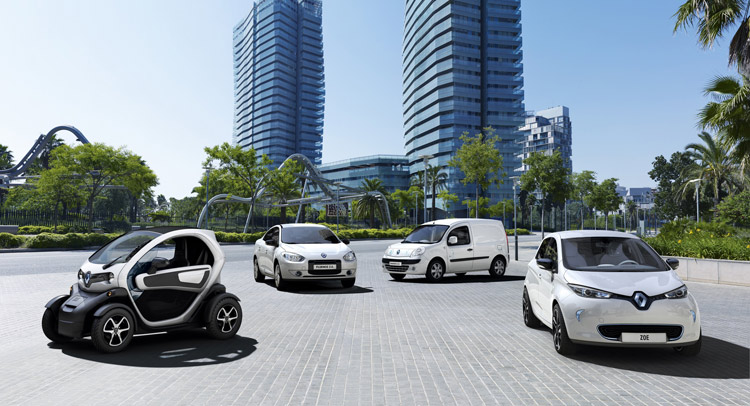The Renault-Nissan Alliance has announced it has sold 200,000 electric vehicles worldwide, with the group’s market share for zero-emission cars reaching 58 percent.
The Alliance sold its 200,000th EV in early November, about four years after the launch of the Nissan Leaf, the world’s first mass-market electric vehicle and the best-selling electric vehicle in history. Of the total, 148,700 units are Nissan-branded electric vehicles and 51,500 are Renaults.
From January through the first week of November of this year, the Renault and Nissan have sold about 66,500 electric vehicles, an increase of about 20 percent from the same period last year. About two out of three electric vehicles sold worldwide are produced by Renault and Nissan.
The United States is the Alliance’s biggest EV market, thanks in part to the country’s 750 quick chargers in operation which allow Leaf owners to charge the batteries from zero to 80 percent in about 30 minutes. Japan, the Alliance’s second-biggest EV market, has more than 2,900 quick chargers in operation.
In Europe, the United Kingdom is the most advanced market in terms of electric vehicle infrastructure, with the quick charging network already covering 87 percent of the UK’s motorways.
The Nissan Leaf remains the best-selling EV worldwide, with about 67,000 sales in the US since its launch, 46,500 units in Japan and 31,000 units in Europe.
As for Renault, the top markets in Europe for its EVs are France, Germany and the United Kingdom. In October, Renault regained the number one EV position in Europe with a market share of 31 perecent, with Zoe being the most popular vehicle with a 23 percent market share.
Nissan’s EV lineup includes the Leaf and e-NV200, while Renault has the Zoe, Twizy, Fluence Z.E. (sold as Samsung SM3 Z.E. in Korea) and Kangoo Z.E.









